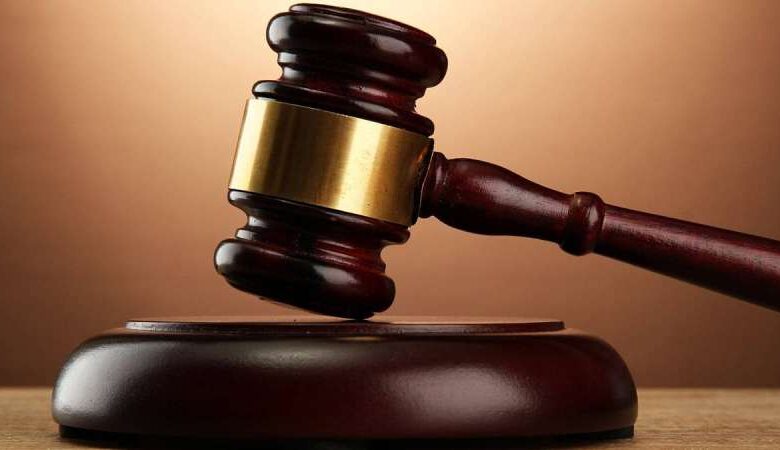Court’s jurisdiction denial raises eyebrows in Al-Jarrah’s forgery case
The case in which Kuwait’s former Minister of Interior and Defense is accused of providing false information to one of the investigation authorities has led to the case being reserved for defendants in a related case.

-
Constitutional expert Dr. Muhammad Al-Faili explained that “if a crime isn’t covered in the law on ministerial trials, it’s treated as a personal act outside that legal framework.”
-
Dr. Ali Hussein Al-Dossari, a Kuwait University Law Professor, stated that “after the Court of Ministers declined jurisdiction in the former minister’s forgery case, Kuwait’s courts and Public Prosecution can handle it due to their broad authority over all crimes.”
The recent decision by the Court of Ministers, stating that it lacks jurisdiction to hear the forgery case against former Minister of Interior and Defense Sheikh Khaled Al-Jarrah, has raised questions about the background and reasons for this decision.
Informed sources explained to Al-Rai newspaper that the case pertains to the contents of the law regarding the trial of ministers. They pointed out that the necessity decree issued in 1990 specified the crimes to which it applies. However, it appears that the law issued by the National Assembly in 1995, following the abolition of the Constitutional Court, may need to address some of its deficiencies, including forgery.
The case in which Al-Jarrah is accused of providing false information to one of the investigation authorities has led to the case being reserved for defendants in a related case.
Constitutional expert Dr. Muhammad Al-Faili explained to Al-Rai newspaper that “the law on the trial of ministers is a law that specializes in certain crimes committed by ministers in the course of their duties, with specific procedural provisions,” indicating that “it could have included crimes specific to ministers, but the legislator did not.”
Al-Faili explained the mechanism for trying ministers for crimes that may be committed, whether related to their ministerial or personal work, saying that “the idea in the law for the trial of ministers is that the act issued by the minister in connection with their ministerial work is subject to the law for the trial of ministers, while the act that is not related to their ministerial work is considered a personal act.”
For example, if a minister, in their personal capacity, forges a contract between themselves and a person in a field outside the scope of their ministerial function, they are governed by the Penal Code, just like any other person… and in accordance with the condition, are we dealing with a related matter?
Al-Faili added, “The law on the trial of ministers included crimes within the framework of being linked to the job, for crimes related to the work of the minister, and they were mentioned in certain sections in the penal code. If we come across a crime that is not described or referred to in the law on the trial of ministers, then we are faced with an act attributed to its perpetrator. It is outside the procedural framework of the law on the trial of ministers.”
For his part, Dr. Ali Hussein Al-Dossari, a professor at the Faculty of Law at Kuwait University, explained that “there are two mandates: one private and the other public, the latter being for the public prosecution represented by the Public Prosecution, which specializes in all crimes. Kuwait’s courts have jurisdiction over all types of crimes for all people, but the Ministers’ Court is an exception. It specializes only in crimes involving ministers.”
Al-Dosari stated, “Since the Court of Ministers decided that it did not have jurisdiction to look into the forgery case involving the former minister, the courts of the State of Kuwait and the Public Prosecution have the right and jurisdiction to examine these cases due to their general authority to handle all crimes.”
Regarding the trial of ministers, besides the competent court “the Court of Ministers,” lawyer Dr. Hussein Al-Abdullah stated that “it is permissible if the actions preceded the ministerial work and are not related to his ministerial work, and if crimes occurred that are not included in the law of the Court of
Ministers or the period in which the incident was committed was prior. If he did not hold a ministerial capacity, then the Public Prosecution is competent.”
On the same note, lawyer Dr. Muhammad Nasser Al-Otaibi pointed out that “the decision of the Court of Ministers regarding the lack of jurisdiction opens the door to the Public Prosecution, as it holds the public lawsuit according to the Constitution. It has two options: firstly, to appeal the ruling of lack of jurisdiction before the Court of Cassation, and secondly, to accept the ruling of lack of jurisdiction, press charges, and conduct an investigation with the accused according to the general rules, as in a regular criminal case.”












